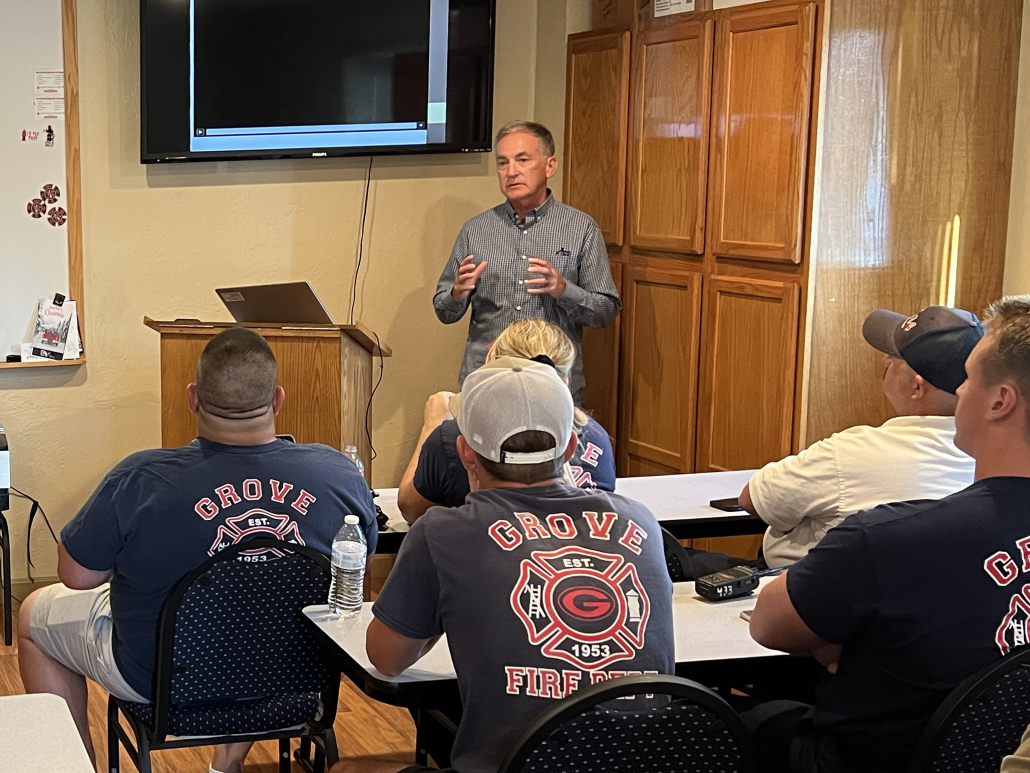SCHEDULE YOUR PRESENTATION TODAY!


What We Offer
Northeast Oklahoma Electric Cooperative wants to make sure you are safe and know the facts when it comes to electricity. While electricity provides the power to operate many of the things we need and like to do, it can also be dangerous if not used wisely and treated with respect. NOEC’s team of specialists is available to give interesting and informative presentations to schools, civic clubs, or other organizations about industry trends, the co-op business model, electricity 101, and our popular electric safety demo.
All presentations are a FREE service to the community.
In our 30 minute to one hour safety presentations, we answer questions about:
- How electricity works
- How electricity is delivered to homes and businesses
- How to be safe around electricity
Want to schedule?
Contact Kristen Sturgess at 918-256-9330 or kristen.sturgess@noec.coop for more information.
BONUS! FREE Activity Book for Kids
Download our Bright Ideas for Staying Safe activity book below.
For more safety ideas, visit: safeelectricity.org




